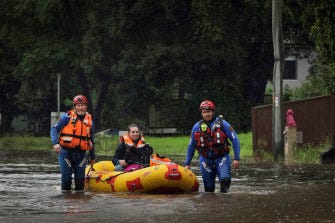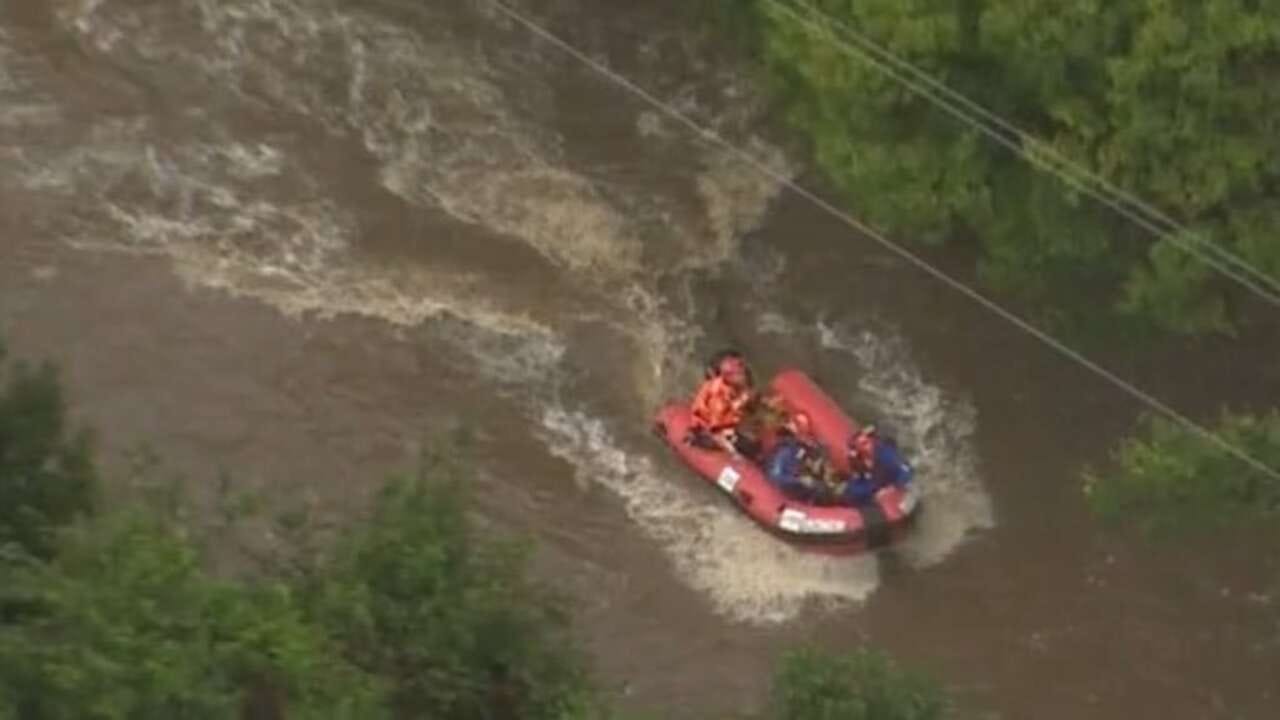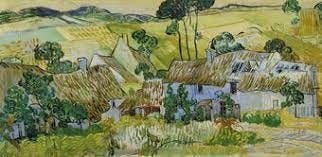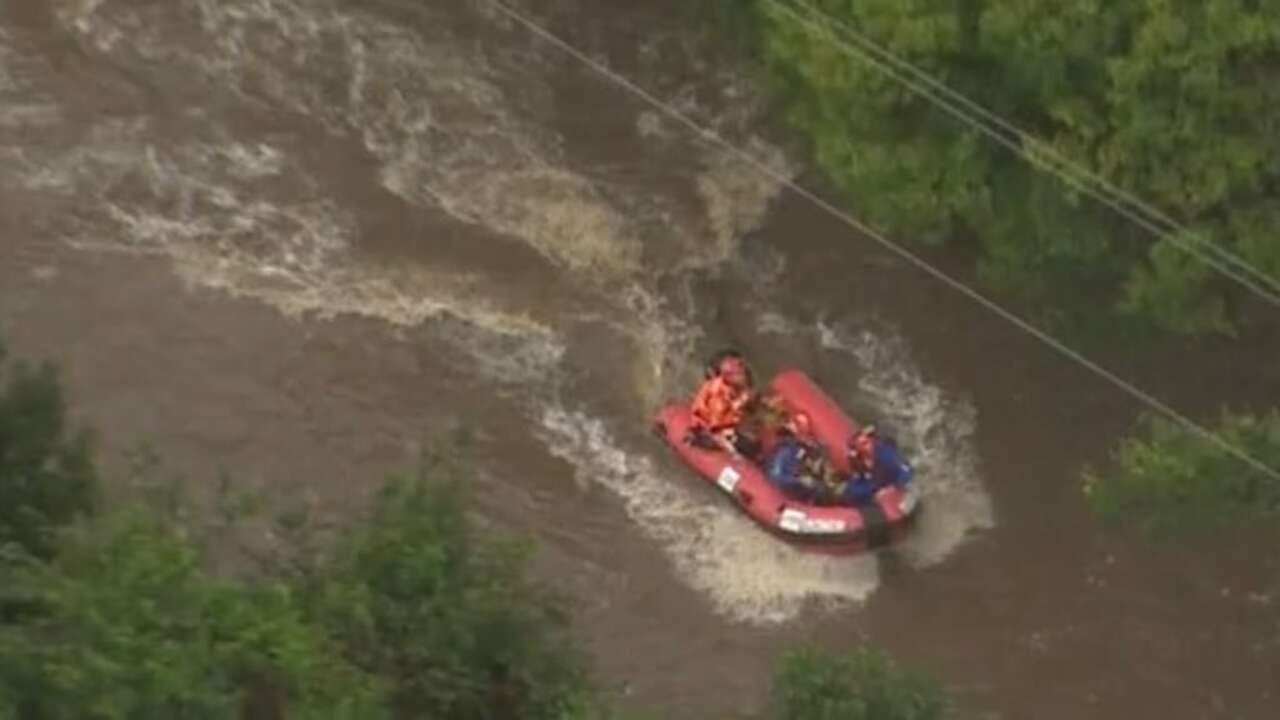
A view at Auvers-sur-Oise, a small town just north of Paris. Van Gogh spent the last few months of his life there, from mid-May 1890, when he left an asylum, to his death on 29 July. At the beginning of June, Van Gogh wrote to his sister: 'there are some roofs of mossy thatch here which are superb and of which I shall certainly make something'.
***
They were like birds settling in a flock. They didn't much like the interface, which was motivated by greed; by secrecy; by contempt. Humble yourself before Your Lord, they declared, but all that imagery wasn't going to work this time around; the barking temple dogs, the belief in monotheism, the sacred, ancient beliefs of the primitives, the legends that were born and withered and died in a moment's breath, all of it now hung in the balance, a delicate thread like the snout of a cyclone swirling through millions of timelines. To find a place. Here, now, in the future, anchored to the past.
Here on Planet Earth it hadn't stopped raining in months.
He was distracted by multiple intents.
He was frightened for their own future, not his; regretted the passing of the years, welcomed a new embrace, found comfort in the arms of an old king, watched the water slide across the surface, shook his head in disbelief, marched asunder, this terrible recognition of the fate of millions.
They moved then, amongst the water and the trees and the drenched, primordial landscape, "time itself the magic length of God", and built a signal post for those to come, and struggled with the organics, "Good Luck they muttered", and in those extraordinary carrion flights, in the sharpening of tools, in the breathtaking beauty of this remarkable place, of the times, the times, when they ran across open fields and were young again, when they climbed mountains and caught the wisp of a scent, when all that had been so cruelly obtained was washed away in the twinkling moment of a lifetime, a lifeform, as the flock settled in that ancient valley, soon to be a futuristic hub, and and the ancient guidance that he sought, the crippling indifference to the fate of humans, or individual humans, as they soared across time and civilisations and manufactured beauty to come to the heart of the matter; which remained exactly as it had been for months, despite all his indifference or attempts to avoid his own fate. Strange, in a sense, that it should be so hard.
You can pray for courage. It may be granted. You can pray for love; you can whistle in the wind.
What was most striking was the beauty of this place, as they crept back to a different kind of thought, and realised the terrible tragedy that had overcome this place.
The politics are as vile as the weather, he was wont to say, in the few moments outside his own imagination when he engaged with real people, when all the technologies of the time were gaspingly primitive, although they thought themselves so sophisticated, their surveillance on multiple levels, their brutality, their indifference, as if the authorities had ever really cared for anything beyond the preservation of their own jobs.
There used to be a saying, rain is God's blessing on the Earth, but in this unseasonable season, when old codgers muttered to each other that they had never seen anything like it, when thousands of people had been displaced by floods, when the washing machine surf of Bondi came to seem like a metaphor of the time, rapidly churning, utterly confused.
The politics are as vile as the weather.
Well, that at least was true.
As the world's only Pentecostal leader, Prime Minister Scott Morrison, prepared to face a pissed off, cheesed off, utterly disenchanted population, small now, at 25 million, already sensing troubled times, the creation of a new slave class, the crushing of their hopes and dreams, the supreme arrogance of the oligarchs.
Already the country that was was no more.
The hope, the plain, simple optimism that once been an unadorned characteristic of the Australian people, was gone, crushed into a simple peasant life. We dream not of ourselves but beyond ourselves; we care about the future because, because.... Because that, too, is so easily crushed; just like all the hopes and dreams of so many people had been crushed, destroyed, annihilated in the previous two appalling years.
They were all acting, or pretending to act, as if nothing had happened, as if the authoritarian derangement which had seized and shaken the polity, had never actually happened, all that brutality, the pepper spraying of grandmothers and the violence towards protestors, as if none of it had happened.
But this brutal destruction of the Old Australia was well in train; and there was no Saviour in sight.
We have all been betrayed.
MAINSTREAM MEDIA
Sydney residents evacuated, some for the third time in a month
Residents in low-lying areas of Greater Sydney are in for another anxious night as floodwaters rise after torrential rain hit the city on Thursday, forcing more than 2000 people to flee their homes – some having done so several times in the past month.
While very heavy rainfall is expected to ease from Friday morning, the weather bureau warned on Thursday afternoon that major flooding of the already swollen Hawkesbury and Nepean rivers may exceed levels reached last month and in 1988.

SES crews rescued Simone Baluch, 32, from her family home in Chipping Norton, with her dog and a litter of kittens in tow, when waters rose unexpectedly quickly as she tried to move household items upstairs. It’s the third time in four weeks the home where she lives with her mother, stepfather, sister and niece – plus pets – has been subject to evacuation orders.
Before this year, the house her grandparents bought in the 1970s had only been evacuated twice: in 2020 and 1989. In 2020, Ms Baluch said, nearly the entire first floor of the house went under. So far, she is relieved “that hasn’t been replicated”.
But the stress of such frequent evacuations is “exhausting”, she said, especially with no end to the wet weather in sight.
The Georges River, which Ms Baluch’s home backs onto, peaked at moderate level on Thursday afternoon, but the Bureau of Meteorology warned further heavy rainfall in the next six-12 hours could result in renewed rises.
Play Video


Residents near the Nepean River have begun evacuating as higher than expected water levels rise.
In addition to Chipping Norton, evacuation orders were also in place for parts of Woronora and Bonnet Bay in the city’s south, and Camden in the south-west. The number of people who had left their homes due to evacuation orders was 2012 at 8pm on Thursday night.
Major flooding hit Menangle on Thursday afternoon, and was expected to exceed the March 2022 and 1988 flood levels. Major flooding was also expected for the Nepean River at Wallacia, and possibly Camden, later in the evening.
+++
https://thenewdaily.com.au/news/2022/04/07/senate-committee-calls-for-covid-19-royal-commission/?breaking_live_scroll=1
A royal commission should be set up to examine Australia’s handling of the COVID-19 pandemic, a Senate committee has recommended.
The calls for the commission, which would examine the preparedness for future virus waves and pandemics, was one of 19 recommendations made by the COVID-19 Senate committee, which handed down its final report on Thursday.
Among the other recommendations were the establishment of an Australian centre for disease control, the federal government being required to report to Parliament every two years on pandemic preparedness, and an expert review into the impact COVID-19 had on aged care.
The report also called for the Commonwealth to work more closely with states and territories to be more consistent on disaster mitigation and response.
The committee’s chairwoman, Labor senator Katy Gallagher, said there had been multiple government failures in relation to the pandemic.
“Some of the problems with the response, some of the failures from the government, has lengthened the lockdowns and we’ve had significant outbreaks as a result of them,” she told reporters in Canberra.
“On those grounds alone, there is a need for a royal commission.”
Senator Gallagher said she had yet to bring up the idea with shadow cabinet, as to whether Labor would commit to such a royal commission if it wins the next election, due to be held in May.
Although the COVID-19 committee has held dozens of hearings, Senator Gallagher said a royal commission would go further.
“This report can be an important building block or a resource for a royal commission,” she said.
“A royal commission is required partly because we’ve spent hundreds of billions of dollars … in economic responses, and over $40 billion in our health response.”
The report also called for greater transparency, including releasing the minutes of previous and future meetings of the Australian Health Protection Principal Committee, which is made up of the country’s chief medical officers.
The Therapeutic Goods Administration’s powers to address misinformation during public health campaigns should also be reviewed.
“More accountability and transparency on decisions is better for ensuring public trust in what’s going on,” Senator Gallagher said.
“There’s no doubt that there was a level of secrecy in decision making.”
The Senator also accused the government of not being open and transparent with information to the committee as hearings continued during its two-year course.
However, the committee’s deputy chairman Liberal senator James Paterson said it eventually became a vehicle for partisan attacks on the government’s handling of the pandemic.




